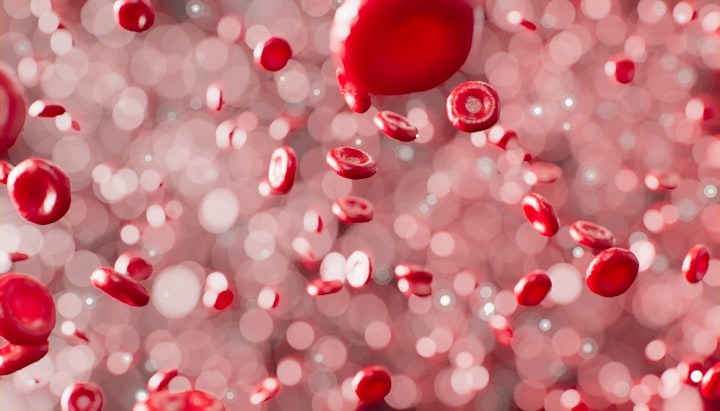Anemia is a medical condition that occurs when there is a deficiency in the number or quality of red blood cells in the body. Red blood cells contain hemoglobin, a protein that carries oxygen from the lungs to other parts of the body. When the body lacks sufficient red blood cells or hemoglobin, it cannot transport enough oxygen to meet its needs.
There are many different causes of anemia, including:
Nutritional deficiencies: The most common cause of anemia is a deficiency in iron, vitamin B12, or folate.
Blood loss: Anemia can be caused by acute or chronic blood loss, such as from heavy menstrual periods, bleeding ulcers, or gastrointestinal bleeding.
Chronic diseases: Chronic diseases such as kidney disease, cancer, or HIV/AIDS can cause anemia.
Genetic disorders: Certain genetic disorders such as sickle cell anemia or thalassemia can cause anemia.
Bone marrow disorders: Disorders such as leukemia or myelodysplastic syndrome can affect the production of red blood cells.
Infections: Certain infections such as malaria can destroy red blood cells.
Medications: Certain medications such as chemotherapy drugs can affect the production of red blood cells.
Autoimmune disorders: Some autoimmune disorders such as rheumatoid arthritis or lupus can cause anemia.
Pregnancy: Pregnant women may develop anemia due to increased demand for iron.
Chronic inflammation: Chronic inflammation due to conditions such as Crohn's disease or rheumatoid arthritis can interfere with the body's ability to produce red blood cells.
It is important to determine the underlying cause of anemia in order to provide appropriate treatment.
symptoms of anemia
The symptoms of anemia can vary depending on the severity of the condition, but may include:
Fatigue and weakness
Pale skin
Shortness of breath or difficulty breathing
Rapid or irregular heartbeat
Dizziness or lightheadedness
Headache or fainting
Cold hands and feet
Chest pain
Inability to concentrate
Irritability or mood swings
Restless legs syndrome
Brittle or spoon-shaped nails
Tongue swelling or soreness
Unusual food cravings (such as for ice or clay)
Delayed growth and development in children
It is important to note that these symptoms can also be caused by other medical conditions, and not everyone with anemia experiences all of these symptoms. If you are experiencing any of these symptoms, it is important to see a doctor for a proper diagnosis and treatment.
treatment of anemia
The treatment for anemia depends on the underlying cause and severity of the condition. Some common treatments include:
Nutritional supplements: If the anemia is due to a deficiency in iron, vitamin B12, or folate, supplements may be prescribed.
Medications: In some cases, medications may be prescribed to increase the production of red blood cells or to treat underlying medical conditions that are causing the anemia.
Blood transfusions: For severe anemia, a blood transfusion may be necessary to replace lost red blood cells.
Lifestyle changes: Making dietary changes to include more iron-rich foods or reducing alcohol consumption may help improve the condition.
Surgery: In some cases, surgery may be necessary to remove a bleeding tumor or to treat a condition such as uterine fibroids.
Treating underlying medical conditions: If the anemia is caused by an underlying medical condition such as kidney disease or cancer, treating that condition may help improve the anemia.
It is important to work with a healthcare provider to determine the best treatment approach for your individual case of anemia. Regular monitoring and follow-up appointments may be necessary to ensure that the anemia is improving and to adjust treatment as needed.






Comments
There are no comments for this story
Be the first to respond and start the conversation.